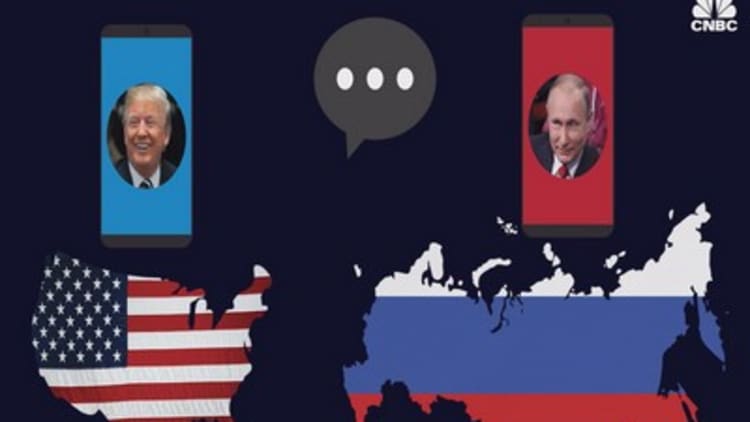A Russian firm accused by special counsel Robert Mueller of illegally meddling in the 2016 U.S. presidential election cites decisions from President Donald Trump's new Supreme Court nominee to argue that the charges against it should be dropped.
Brett Kavanaugh, who could fill the Supreme Court seat soon to be vacated by retiring Justice Anthony Kennedy, warned the government in a 2011 court decision that if it wants to charge foreigners with violating certain laws about political contributions, then it must prove that those foreign nationals were aware of the laws being broken.
The Russian company, Concord Management and Consulting, quotes Kavanaugh's memorandum in that 2011 case as an opening statement in its bid to drop the special counsel's charges.
"The Special Counsel found a set of alleged facts for which there is no crime," a lawyer for Concord wrote in the motion filed in Washington, D.C., district court on Monday. "Instead of conceding that truth, however, the Special Counsel attempts to create a make-believe crime that is in fact no crime at all."

While Kavanaugh's 2011 decision actually upheld a statute barring foreigners temporarily in the U.S. from donating money to political candidates, he noted that "seeking criminal penalties for violations of [laws regulating foreigners’ political contributions] will require proof of defendant’s knowledge of the law."
Kavanaugh's 2011 ruling also declined to address questions about whether Congress could ban foreigners from lobbying or advocating for broad political issues while temporarily situated in the U.S.
Concord is among the 13 Russian individuals and companies charged in February by Mueller with violating U.S. laws "in order to interfere with U.S. elections and political processes."
All of the defendants in that case are charged with conspiracy to defraud the United States. Concord is specifically accused of providing funds and oversight for Internet Research Agency as it allegedly waged a coordinated online troll campaign intended to sway the 2016 election.
Concord also cites Trump's first Supreme Court pick, Justice Neil Gorsuch, as it argues that Mueller's charges against it are "unconstitutionally vague."
Gorsuch, concurring in part with a 2018 Supreme Court decision, wrote that vague laws "can invite the exercise of arbitrary power ... by leaving people in the dark about what the law demands and allowing prosecutors to make it up."


